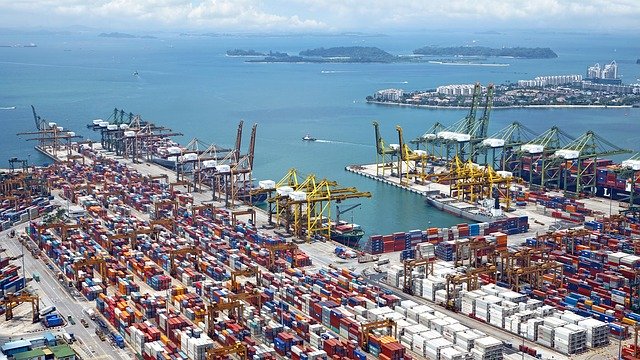Brief reminder
Incoterms are international rules that reflect business practices in the purchase and sale of products.
These rules describe:
- The obligations of each party. E.g.: Who is in charge of transportation or licensing?
- Risk allocation. When are the risks transferred to the buyer?
- Cost allocation. Which part bears which cost (transport, packaging, loading,…)?
Incoterms, on the other hand, do not define when ownership is transferred.
These rules are reviewed every ten years by the International Chamber of Commerce (ICC) in order to adapt them to changes in business practices.
This subject is of particular interest to legal professionals, especially in transport law, as having a thorough knowledge of the subject will enable them to advise their clients on the best Incoterm to use according to their specific situation and to avoid the common mistakes that are commonly encountered.
Presentation
Incoterms are presented in three letters and grouped into two categories:
a) Incoterms that can be used for any type of transport
There are seven types of Incoterms applicable to any type of transport:
- EXW: Ex-Works
- FCA: Free-Carrier
- CPT: Carriage Paid To
- CIP: Carriage Insurance Paid To
- DAP: Delivered At Place
- DPU: Delivered At Place Unloaded
- DDP: Delivered Duty Paid
b) Incoterms that can only be used for maritime transport
There are four types of Incoterms applicable to maritime transport:
- FAS: Free Alongside Ship
- FOB: Free On Board
- CFR: Cost and Freight
- CIF: Cost, Insurance and Freight
Each Incoterm is then divided into several articles (A/B) defining the obligations of the buyer and seller, costs and risks.
Key points of the reform
Clarity
One of the key points of the reform is to provide clarity and improve the presentation of Incoterms, in order to make it easier for economic actors to direct them towards the right Incoterm. In this respect, the layout of the articles for each Incoterm has been reviewed as follow:
- A1/B1 : General obligations
- A2/B2 : Delivery
- A3/B3 : Transfer of risks
- A4/B4 : Transport
- A5/B5 : Insurance
- A6/B6 : Delivery/transport of documents
- A7/B7: Export/import customs clearance
- A8/B8 : Verification/Packaging/Marking
- A9/B9: Cost Allocation
New option for FCA
The buyer and seller may now agree that the buyer will instruct the carrier to issue an on-board bill of lading to the seller if he needs it.
Different levels of insurance cover in CIF and CIP
From now on, the Incoterm CIP provides all-risk insurance coverage and the Incoterm CIF a minimum insurance coverage. It is, however, quite possible for the parties to agree on a lower level of cover in CIP or higher level of cover in CIF.
Arranging for carriage with seller’s or buyer’s own means of transport in FCA, DAP, DPU and DDP
In the Incoterms 2010, it was assumed that the goods would be carried by a third party. In some situations, the goods can be carried by the parties themselves in the abovementioned F and D rules.
DAT becomes DPU
The Incoterm DAT (Delivered at Terminal) is now called DPU (Delivered at Place Unloaded), in order to highlight the fact that the place of delivery of the good can be located anywhere (and not only at a terminal).
Transport and customs security
Security related requirements have a growing importance in international sales. Questions related to security and the associated shipping practices mentioned in articles A2/B2 and A10/B10 of Incoterms 2010 are on a more complete manner dealt with in the Incoterms 2020. The security related are inserted in articles A4 (transport) et A7 export/import (clearance) whereas the costs incurred by these requirements are allocated in articles A9/B9 and A10/B10.
Explanatory notes
The “Guidance notes” of the Incoterms 2010 now become “Explanatory notes”. These explain the fundamental points of each Incoterm and are intended to allow the choice of Incoterms to be made more efficiently and to provide guidelines in the event of interpretation problems.
 Denis Philippe et Ariane Warnimont – Philippe & Partners
Denis Philippe et Ariane Warnimont – Philippe & Partners
***
Sources:
|



0 reacties